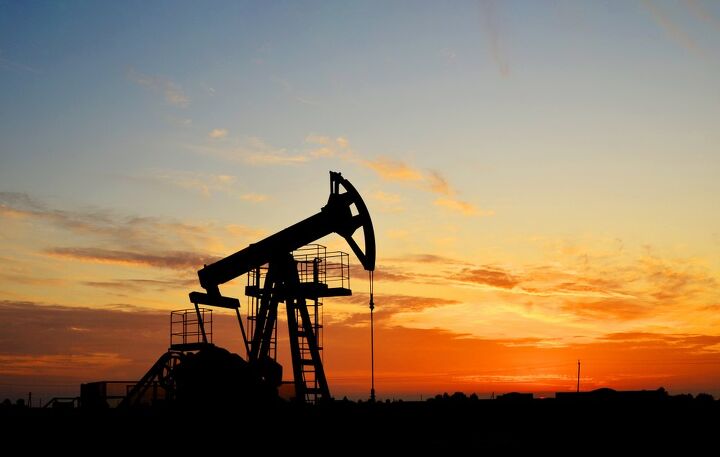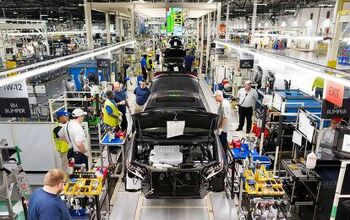There's Little Reason to Hunt for Fresh Oil in 2020

Ever since the first major oil fields were discovered at the start of the 20th century, the world has been on a never-ending hunt to see where else black gold might be hiding. Monetizing seepage areas goes back even further. But with global oil demand having dissipated on account of the pandemic, there’s little reason to spend cash on additional procurement.
Combine that with the green movement doing everything it can to convince governments there’s only one ethical way to handle energy, and we’re likely to be moving into an era where fossil fuels sell for less but cost more to harvest/utilize thanks to carbon emission regulations.
This has left oil companies pondering the true value of seeking new sources of oil, with some having already decided there’s no point.
Earlier this month, BP said it no longer had any interest in conducting exploratory surveys in new countries. It has what it needs for the foreseeable future, noting that pricing had become unstintingly low as swaths of the industry finds itself having to pay just to find someone to take surplus product off its hands. Meanwhile, oil-producing nations have cut output by record levels this year to curb their bloated supply and reduce worldwide inventories. The Organization of the Petroleum Exporting Countries (OPEC+) recently eased agreed-upon cuts to 7.7 million barrels per day (bpd) from 9.7 million bpd.
Rystad Energy AS expects roughly 10 percent of the world’s recoverable oil resources (representing around 125 billion barrels) to become obsolete in the near future. Using the Falkland Islands as an example, Bloomberg attempted to explain the ramifications in a recent report. Despite holding a sizable and mostly untapped oil reserve, the South Atlantic region won’t see any of its previously planned rigs going up.
From Bloomberg:
Larger companies have also begun voicing that realization for other projects. BP said in June it would evaluate its portfolio of discoveries and leave some undeveloped. Chief of Staff Dominic Emery already hinted last year at what kind of resources might never “see the light of day.” Complicated projects could be shelved in favor of fields that are quicker to develop, such as U.S. shale, he said.
The pressure to curb emissions may also prompt companies to leave the most carbon-intensive reserves in the ground, as France’s Total SE acknowledged last month when it took an $8 billion writedown on carbon-heavy assets.
The list of projects most at risk includes deepwater discoveries off Brazil, Angola and in the Gulf of Mexico, said Parul Chopra, vice president for upstream research at Rystad. Canadian oil-sands projects such as the expansion of the Sunrise development in Alberta are also in doubt, he said.
While this may be a triumph for ecosystems in underdeveloped parts of the world, anywhere that has easy access to oil and doesn’t need additional refinement processes should be sitting pretty. Of course, it’s difficult to predict what will happen in the long run — especially with most oil production firms seeking to transition into energy companies with a greener public persona. Contributing factors include how we count carbon emissions in terms of oil procurement and refining, as well as how successfully national grids can be bolstered for the presumed influx of electric vehicles (and a higher reliance on renewable forms of energy).
That’s assuming non-fossil fuels are even capable of providing the amount of energy the world needs to keep humming, however.
[Image: Maksim Safaniuk/Shutterstock]

A staunch consumer advocate tracking industry trends and regulation. Before joining TTAC, Matt spent a decade working for marketing and research firms based in NYC. Clients included several of the world’s largest automakers, global tire brands, and aftermarket part suppliers. Dissatisfied with the corporate world and resentful of having to wear suits everyday, he pivoted to writing about cars. Since then, that man has become an ardent supporter of the right-to-repair movement, been interviewed on the auto industry by national radio broadcasts, driven more rental cars than anyone ever should, participated in amateur rallying events, and received the requisite minimum training as sanctioned by the SCCA. Handy with a wrench, Matt grew up surrounded by Detroit auto workers and managed to get a pizza delivery job before he was legally eligible. He later found himself driving box trucks through Manhattan, guaranteeing future sympathy for actual truckers. He continues to conduct research pertaining to the automotive sector as an independent contractor and has since moved back to his native Michigan, closer to where the cars are born. A contrarian, Matt claims to prefer understeer — stating that front and all-wheel drive vehicles cater best to his driving style.
More by Matt Posky
Latest Car Reviews
Read moreLatest Product Reviews
Read moreRecent Comments
- EBFlex With the days supply of inventory Stellantis may welcome a strike
- Bd2 Oh, the emptiness overfills this citySo you'll be queen tonightAs you overthrow, looking pale and pretty
- Daniel J I generally love colors outside of the normal white, black, or silver. The biggest issue we've had is Mazda tends not to put the colors we want with the trim or interior we want.
- Daniel J If you believe what Elon says, he said on X that the plan is expand at current locations and make sure that the current chargers are being maintained. Like I said on the previous thread on this, they probably looked at the numbers and realized that new chargers in new places aren't cost effective.
- Daniel J How is this different than a fully lifted truck? I see trucks rolling off the lot with the back lifted already, and then folks get the front lifted to match. Are there specific "metrics" at how high they can and can't be? The example shown has the truck's front lifted more than normal, but I've seen these around here where the backend is dropped and the front end is at a regular height.


































Comments
Join the conversation
For those with money to invest, keep an eye on the oil companies that continue to explore, even if they don't develop fields right away. Covid has put us in a recession, but put the world into a depression. Once we recover, the world economy will ramp up, and all energy will be in demand again. The companies able to tap discovered but undeveloped supplies will be the first to benefit.
Agree energy demand will increase once the economy recovers. I do believe that in the long run there will be more environmental regulations mandating stricter emission and efficiency standards on ICE and electric generation which will increase the use of EVs and alternative sources of energy in the next 20 to 50 years. Batteries need to get smaller, less expensive, more range, and more capacity. Infrastructure to support EVs will need to become more widespread. There will need to be other alternative sources of energy in addition to solar and wind especially in areas that don't have an abundance of both. Additionally more oil and gas companies will transition to producing and providing cleaner energy alternatives but this will take some time.